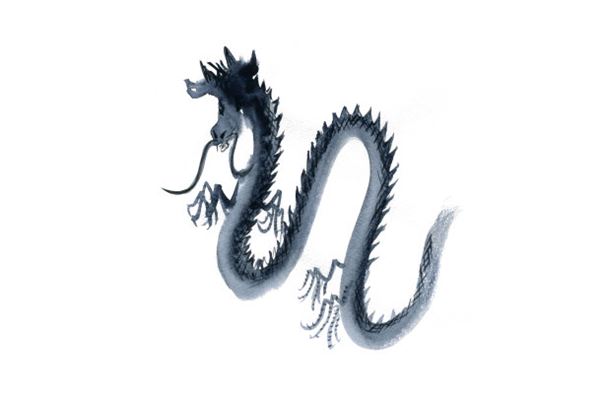Dreams are complex and changeable
Dreams are complex and changeable
According to the Buddhist scriptures, there are four types of dream scenarios.
The first is the karma, which was created in the past life. Sometimes dreams of the scene, never seen, never thought of. Why did you have this dream? I never thought I'd seen it in my life. I thought I'd done it in my previous life. The will is easier to control when sleeping than when awake. Can not control, so in the many life before the karma, sometimes will be current, can not control will be current, so will have a lot of strange dreams, there are these dreams.
The second is delusion to dream, delusion is what we often say that the day has thought, the night has a dream.
The third kind is the premonitory dream, that is, the future events, the events of tomorrow and the day after tomorrow, or the events of a few months later, have not yet happened, but appear in the dream. According to the Buddhist scriptures, the third cause and effect is true, not false. What if I don't know the cause and effect that determines the past, present and future?
Fourth, ghosts and gods dream, ghosts and gods to dream, this is also a cause. If we dream of the family and friends who have passed away, most of them want to ask for help when they have difficulties and pains. You can chant the sutras, or you can burn some paper money for him.
In fact, these four scenarios are not the only ones predicted by dreams. Because of the difference in experience, concept, cultural background and understanding of dreams, there are also great differences in the classification of dream types. Some are divided from the perspective of modern science, and some are divided from the perspective of faith. However, no matter from what Angle to study and divide the type of dream, it is inseparable from the factor of 'time'. According to the concept of time embodied in the dream information, the modern Duke of Zhou divided human dreams into three types, namely, past dreams, present dreams and future dreams. Here is a brief description of these three types of dreams.
The first type: past dreams.
The so-called past dream refers to the situation processed and induced by the brain during sleep, which is previously experienced or thought. This kind of dream is the most frequent dream in a person's life. For past dreams, according to the dream image to divide, can also be divided into inspiration type and non-inspiration type. The so-called inspiration type refers to the brain's re-induction and deep processing of the information that has not been clear in the past during sleep, and shows the original face of the information, so that people can understand the truth of things that have not been understood before through dreams. Many scientists and inventors have made important discoveries through such dreams.
Russian chemist Dmitri Mendeleev dreamed of the arrangement of elements in a dream and compiled the periodic table when he woke up.
American golf master Nick dreamed of a different way of holding the club, and tried this new method of holding the club to play, so as to make great progress.
The German chemist Kekule dreamed that the atoms were arranged in the shape of a snake, and jumped in the fire, bending and curling, and suddenly the atomic snake bit its tail, forming a circle and spinning endlessly. Inspired by this dream, he came up with a formula that represented the molecular structure of benzene with a hexagonal spherical structure, thus laying the foundation of aromatic chemistry.
From these examples, it can be seen that this kind of inspired dream is the extraordinary self-play of the potential of the brain in the dream, so that the dreamer can solve the problem that cannot be solved by the brain due to the tension and fatigue of the brain in the non-sleep state. Therefore, inspired dreams are in a sense very beneficial to people. Non-inspired dreams, which refer to ordinary dreams, are not of much value in practical applications.
The second category: present dream.
The so-called present dream refers to a dream that contains neither past information nor future information in the dream. It is a dream in which the brain or a certain part of the body receives some physical sensory stimulation during sleep, so that the brain produces conditioned reflexes in the dream, through which the information is reflected and the associative information is reflected in the form of a dream.
During sleep, the body is stimulated by certain objects to produce pain, and the doctor will give himself a needle plot in the dream. Therefore, nowadays dreams are mostly caused by external information interference during sleep.
The third category: future dreams.
The future dream refers to that the scene shown in the dream matches with some information in the future, which is what people refer to as the dream harbinger of the future. This kind of dream is the main object of modern Zhou Gong dream interpretation research, because it can give us future information in the form of dreams in practical application.
Dreams that predict what will happen in the future are called prophetic dreams. There is no clear scientific evidence for predictive dreaming, and some people dismiss it as superstition or chance. However, there are some phenomena in dreams that are difficult for modern science to explain. Even the most serious scientists have to admit that sometimes dreams really do seem to predict future events. Although such dreams are rare, some dreams that appear to be prophetic on the surface are actually coincidental or for other reasons. However, it cannot be explained by other reasons, and it is difficult to say that it is a coincidence that prophetic dreams do occur occasionally.
The death or danger of a loved one is a common theme in prophetic dreams, perhaps because such momentous events distract the subconscious mind. Take a look at this dream example:
A lady had a bad night's sleep. She dreamed that she and her mother were standing in the living room, looking at the dead body of one of their best friends lying on the bed. She stood in the same manner as her mother. 'He was my best friend,' my mother said, weeping. When she woke up, the woman couldn't get rid of the dream, but she didn't care that much, because her friend couldn't be lying in her own bed. However, a month after the dream, the woman's mother died of a heart attack in her sleep. She was awakened by a gasp and immediately alerted the doctor and her friend. The doctor arrived first and said mother had died. The friend came into the room and stood in the same position as the mother in the dream, and he said the same words in the same tone.
One difference between prophetic dreams and ordinary dreams is that they are realities, not symbols. Prophetic dreams don't feature surreal scenes of tigers talking and themselves flying through the sky. Prophetic dreams and later events also differ in detail, and some of the differences can be motivated, perhaps by the dreamer's subconscious distortion. For example, in the dream mentioned above, a woman dreamed that her good friend died, and she and her mother stood by the bed to mourn, but the fact was that her mother died, and her friend stood by the bed to say condolences. The motive: 'I want someone else to die, not my mother.'
A businessman had a dream that he had returned to his home, where he was having a big banquet, decorated with lanterns and decorations, and beaming with joy. The merchant's father was particularly happy, beaming with joy and making witty remarks, and he kept toasting his guests as if he were celebrating some happy event. Then, for some reason, the merchant's father went out and did not return for a long time, so the merchant went out to look for his father. It was snowing heavily outside and the snow lay thick on the ground. As he looked around, he saw his father coming from a distance and suddenly fell down just as he was approaching the merchant. The merchant hurried a few steps to see what was wrong with his father, but he saw that his father had stopped breathing and his pulse had stopped. The merchant suddenly burst into tears, and then the merchant woke up with fear. Soon, the businessman received a phone call from home, and learned that his father had been in a car accident not long ago, causing a fracture of the arm bone and a crack in the leg bone. The scene was very dangerous at that time, and it was fortunate that he did not kill his father.
This dream is no different from the reality, it seems that the dream 'looks into the future' did not see clearly.
This kind of prophetic future dream is particularly concerned by modern Zhou Gong dream interpretation, which has two forms of expression, one is intuitive dream and the other is non-intuitive dream (figurative dream).
 Dream of each other's love words
Dream of each other's love words  Black Dragon
Black Dragon